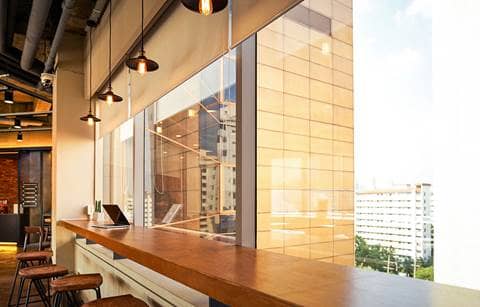
Despite stay-home recommendations easing since the beginning of the year, the Detroit real estate market is still mired in the aftermath of a national shutdown. Investors and developers alike are asking, “What’s going on in the Detroit real estate market today?” The answers could affect real estate development throughout the next several years.
In a virtual panel, the 2021 Motor City’s Emerging Leaders in Commercial Real Estate hosted by Real Estate Publishing Corporation, six emerging leaders in the Detroit commercial real estate industry shared their thoughts on the current and future state of Detroit real estate development.
“It’s no secret at this point that there has been a lot of significant development investment recently in Detroit. It’s led to a huge jump in the value of commercial property as a whole,” said Plante Moran Realpoint's, formerly Plante Moran REIA's, Senior Vice President Tori Manix during the panel. “We’ve seen a lot of demand from different users, pretty much across every asset class, and rising market rents, especially in multifamily. So clearly there’s a ton of growth and interest in the city.”
Despite that positive summary, Tori went on to explain that even pre-pandemic, development in Detroit was becoming challenging as it faced headwinds, specifically with rising construction costs and the ceilings reached in multi-family rents.
On the subject of rents, Tori and others on the panel noted the limited pool of renters that could afford to spend $2,500 a month for a one-bedroom apartment in the city. Unlike a lot of other urban cores, the housing market is generally more affordable in nearby areas like Royal Oak and Ferndale. While maybe not the norm, these nearby markets could be enticing away from the city the types of residents who can afford downtown rents.
Possibly the largest contributor to the slowdown in the Detroit development boom has been the impact of increasing construction costs on developer’s ability to successfully push projects forward. She said there was no exact answer, but developers are looking for ways to get creative to reduce construction costs. She thinks the factors that will push some of these stalled developments forward is the ability to get creative on value engineering, find areas to lower construction costs, and use other capital such as incentives.
Coupled with the disruptions caused by the coronavirus pandemic, the trend of major delays in projects across the city has become more prevalent. Others on the panel were quick to note that similar development challenges can be found across the county. Continued interest in Detroit, as well has some strong fundamentals in some asset classes, may offer opportunities to those who are able to adjust capital stacks and work through disruptions.
For more insights into the Detroit real estate market, listen to the panel’s entire discussion.



